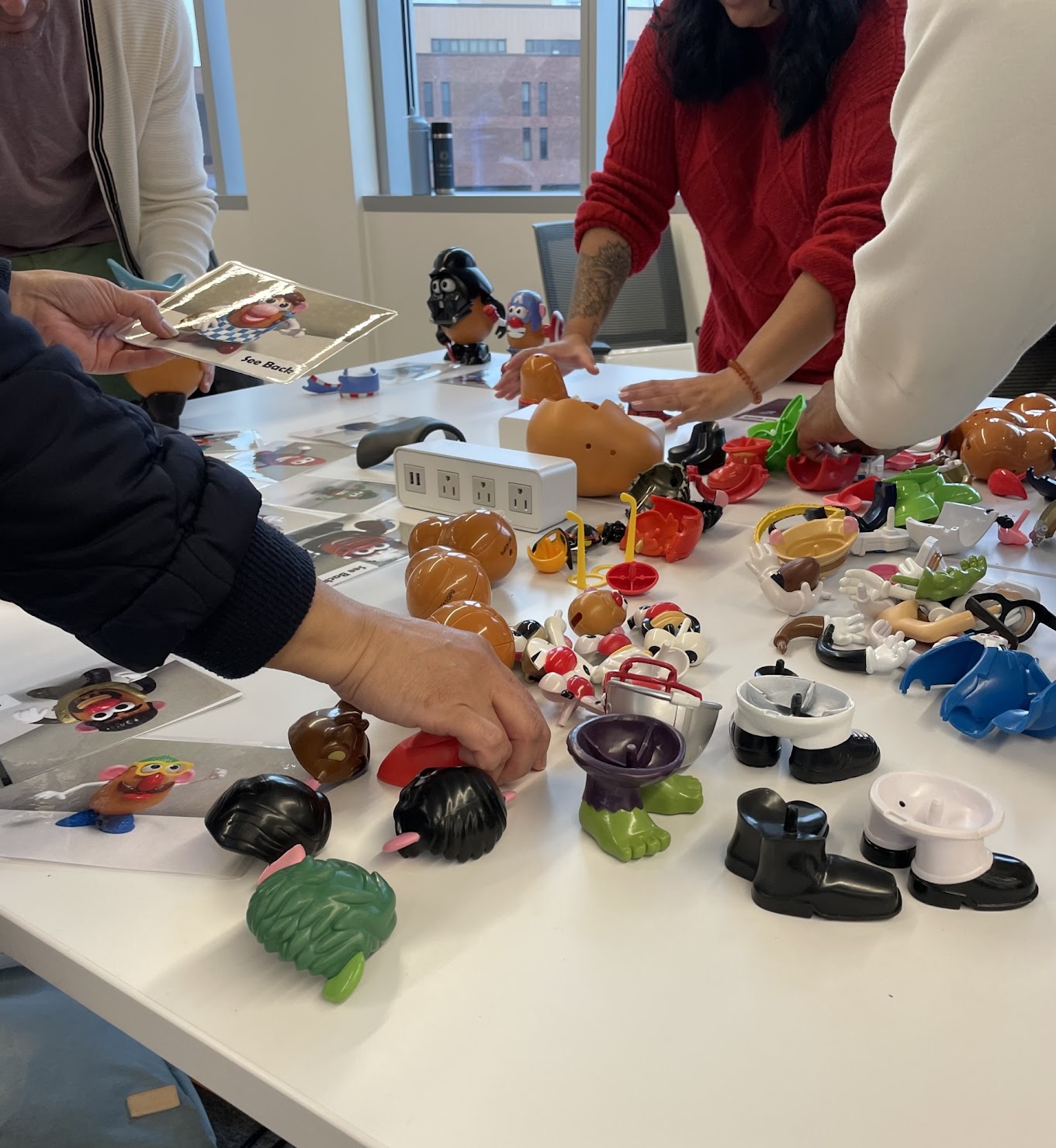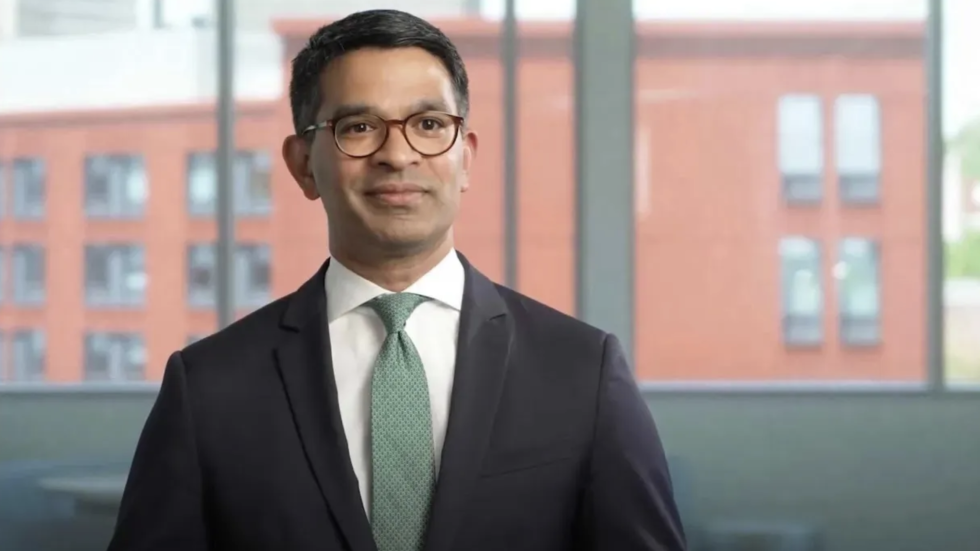I’ve also seen clinicians, executives, patient advocates and government officials from a variety of academic and professional backgrounds truly transform healthcare with their capstone projects.
On a personal note, I am immensely proud of what the faculty, students and SPS staff have accomplished within this program. Most of the faculty and many of the MHL program staff have been with the program since its inception – throughout unforeseen challenges brought on by the pandemic, budget-related decisions and other factors, their dedication and passion has never wavered.
We have doubled the size of our student body and are now admitting students for our 12th cohort, which is testament to the collective effort of everyone who believed in the enormous value of hybrid executive education. I am so profoundly grateful for their steadfast support as the MHL program continues to thrive as a program of learning, connection and growth.
3. What has been your most memorable teaching experience/moment at the School of Professional Studies?
As Executive and Academic Director of MHL, I attended all classes offered, both onsite and online. I remember attending my first quality improvement in the learning organization (QILO) class in which all students were seated at tables. In the center of each table, t here was a bag of disassembled potato head parts belonging to various members of a potato head family that was just involved in a car accident. Each table had students of various backgrounds including surgeons, hospital executives, pharma companies, insurance companies and patient advocates.
here was a bag of disassembled potato head parts belonging to various members of a potato head family that was just involved in a car accident. Each table had students of various backgrounds including surgeons, hospital executives, pharma companies, insurance companies and patient advocates.
It was so interesting to observe the dynamics. Initially, the surgeons (being patient-focused) tried to lead the exercise sorting through the pile of body parts and attaching each character’s various limbs, rejecting arms and legs that did not fit. Then, the business executives (adopting a systems perspective) took over, suggesting that body parts be sorted and organized by type: arms in one pile, legs in another, etc. Ironically, it was the non medically-trained people who best solved this problem in the quickest time! How enlightening for all! It was a fantastic way to see that – from that point forward – the entire class recognized the value of looking beyond their training for other points of view.
4. What skills do you believe are most crucial for professionals in today's rapidly changing job market?
The keys to success include openness to new ideas, adaptability, empathy, digital literacy, familiarity with AI, active listening and analytical thinking rooted in data interpretation. Within the MHL program, we actively identify and encourage our students to develop each of these skills through teaching, demonstrations, case studies and role-playing activities.
For example, after studying Captain Sullenberger’s miraculous landing of a passenger airliner on the Hudson River after both engines failed, the class concluded that 'an unchecked ego can be a leader’s worst enemy, especially in a crisis.' They remarked how Sully remained calm and focused on the task at hand: landing the plane safely. From this case, students learned that while leaders cannot prepare for every conceivable risk, they must be ready for the unexpected by assessing risks in real time, adapting to the circumstances and fostering a collegial team built on mutual trust.
5. How has the curriculum you teach adapted to meet emerging industry trends and demands?
When developing the program, I consulted C-suite and HR leaders across various healthcare sectors, including insurance, medical products and government regulators. I asked them about the skills and training needed for leaders to address current and future challenges such as an aging population, rising costs, burnout and the mismanagement of medical resources.
In collaboration with my MHL colleagues, Jim Austin and Larry Chait, we addressed these issues in our book, “Leading Strategic Change in an Era of Healthcare Transformation.” We noted that if healthcare operated like the banking industry, basic transactions could take weeks, revealing the inefficiencies that hinder innovation in our field.
Healthcare is unique — physicians are the customers, and the system is fundamentally about life and death. Unlike other sectors, where market forces dictate supply and demand, healthcare lacks these mechanisms, resulting in inadequate access and quality for many.
While incremental changes have yielded some improvements, I believe we need significant, transformative shifts to advance healthcare delivery and quality. Our curriculum evolves annually to reflect stakeholder needs and industry trends. We focus on fostering both small, ongoing improvements and bold innovations that can disrupt the status quo.
6. What unique challenges and rewards come with teaching master's students and adult learners?
There are so many rewards that come with the students in MHL. Like all Brown students, they are intelligent, committed to learning and happy to be part of the Brown community. Most of the MHL students are already experienced and successful, but they are attending the program because they are continuous learners and want to make a positive impact.
The main challenge is establishing a reasonable schedule that accommodates life’s demands. While undergraduates may struggle to submit assignments on time due to social pressures, adult learners face competing demands from family and work-related responsibilities. However, after just a few days, MHL students typically find their rhythm, allowing them to manage their commitments effectively and meet submission deadlines.
7. How has the shift towards online and hybrid learning models affected your teaching approach?
Not only has the shift towards online and hybrid learning models affected my teaching, but – much to the delight of my kids and grandkids – it has made me a really cool “grandmother” who texts regularly, has cool tech toys and can offer advice related to learning management systems. (The kids still beat me at video games.)
The shift to online learning has prompted me to develop a more detailed grading rubric and become more attuned to the importance of respectful e-communication. The hybrid learning model has fostered greater class cohesion and allowed me to connect with students more deeply than when teaching exclusively online or in person.
8. How do you foster networking and professional connections among your students?
Networking is definitely encouraged within the healthcare leadership program. Students work in teams, which are shuffled throughout the courses and are given both individual and team assignments. Students are required to post their ideas on class discussion boards and thoughtfully and respectfully respond to the posts of other students.
In addition to fostering connections among students within their class, I often encourage them to reach out to alumni, who can offer valuable insights based on shared experiences, backgrounds and challenges. This networking — both within and across cohorts — has led to job opportunities, valuable professional support and lasting friendships.
9. Looking beyond the next 10 years, how do you envision the role of professional education evolving in response to technological advancements and the future of work?
AI is just the beginning — caution: massive disruptions are coming in both work and education! We already see robotic surgery, AI-driven teaching and grading, telemedicine and flexible work arrangements. I envision professional education shifting to emphasize the super skills leaders will need in the future: effectively harnessing Virtual Reality and forging strategic collaborations with robots and other intelligent machines.
10. What advice would you give to professionals considering pursuing advanced education today?
Go for it! Qualitative and quantitative data gathered from surveys and conversations with MHL alumni indicate that graduates:
- Are happy in their jobs, with some securing new positions both within and outside the organizations they were affiliated with when they began the program.
- Are earning higher salaries.
- Stay connected with their cohort members and other MHL alumni.
- Are glad they completed the MHL program!
Graduates continue to reach out, asking, 'What’s next?' My response is, 'Continue your education to build on the knowledge and skills you've already acquired, and keep learning to take on new tasks and seize new opportunities.' I believe that continuous learning fosters experimentation, exploration, imagination and creativity. These qualities benefit individuals, their workplaces and society, so I envision broad support for future advanced education for professionals.
%20copy_1.jpg)
